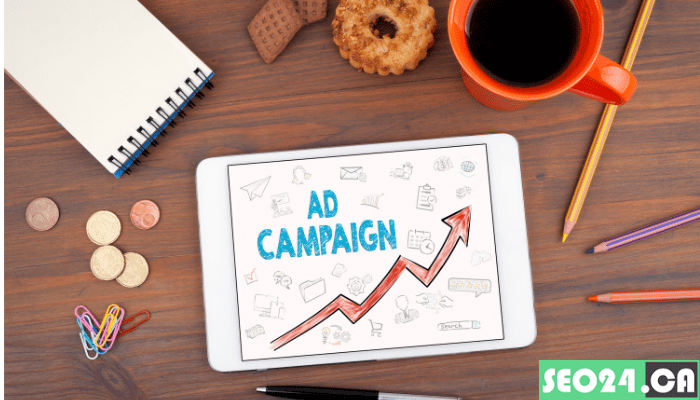
Are Google Ads and PPC the Same?
When it comes to digital marketing, two terms often used interchangeably are Google Ads and PPC. While they are closely related, they are not exactly the same. In this blog post, we will explore the key differences, similarities, and how they contribute to successful marketing strategies. Whether you’re a business owner looking to increase your online visibility or someone interested in learning more about digital advertising, this guide will provide you with clarity on these terms.
Table of Contents
What is Google Ads?
Google Ads, previously known as Google AdWords, is an online advertising platform developed by Google. It allows businesses to create advertisements that appear on Google’s search engine results pages (SERPs), YouTube, Gmail, and other Google partner websites. Google Ads offers a variety of ad formats, including text ads, display ads, shopping ads, and video ads.
The platform operates on a bidding system, where advertisers pay to have their ads shown to specific target audiences based on keywords, demographics, and other targeting criteria. Google Ads allows businesses to set a daily budget and only pay when a user interacts with their ad, such as by clicking on it.
What is PPC (Pay-Per-Click)?
PPC stands for Pay-Per-Click, a type of online advertising where advertisers pay a fee each time their ad is clicked. This model is commonly used in search engine advertising, where businesses bid on keywords related to their products or services to have their ads displayed when users search for those keywords.
While Google Ads is the most popular platform for PPC campaigns, PPC advertising can also be conducted on other platforms like Bing Ads, Facebook Ads, or LinkedIn Ads. In essence, PPC is a broad advertising model, and Google Ads is one of the most widely used platforms that utilize this model.
Key Differences Between Google Ads and PPC
Although Google Ads and PPC are related, they are not the same thing. Here are the key differences:
Platform vs. Advertising Model
Google Ads is a specific advertising platform owned by Google.
PPC is a payment model where advertisers pay for clicks on their ads, which can be used on various platforms, including Google Ads.
Scope
Google Ads is a platform with a wide range of ad formats, including search, display, shopping, and video ads.
PPC is a payment model used on different platforms for search engine marketing and online advertising in general.
Usage
Google Ads is one of the most widely used platforms for PPC campaigns, but it also supports other payment models like CPM (Cost Per Thousand Impressions) and CPA (Cost Per Acquisition).
PPC specifically refers to the cost-per-click model, where advertisers pay only when users click on their ads.
Audience Reach
Google Ads has access to Google’s vast network, including the Google search engine, YouTube, Google Display Network, and partner sites.
PPC can be used on various search engines and social media platforms, depending on where you choose to advertise.

How Google Ads Uses the PPC Model
Google Ads is an example of a platform that uses the PPC payment model. When you create a Google Ads campaign, you select relevant keywords and bid for the opportunity to have your ads shown to users who search for those terms. You’ll only be charged when someone clicks on your ad, hence the pay-per-click system.
Google Ads also gives advertisers the ability to set maximum bids, which limits how much you’re willing to pay for each click. The system uses an auction-based approach to determine which ads will be displayed and in what order. Factors like your bid amount, the relevance of your ad, and the quality of your landing page all play a role in this auction.
Benefits of Using Google Ads and PPC Advertising
Both Google Ads and PPC advertising have numerous benefits, particularly for businesses looking to increase their online visibility and drive traffic to their websites. Here are some of the key advantages:
Targeted Advertising
Google Ads allows you to target specific demographics, locations, devices, and interests. This level of targeting ensures your ads are shown to the right audience at the right time.
Cost Control
With PPC advertising, you have complete control over your budget. You can set daily or monthly limits and adjust your bidding strategy to meet your goals.
Measurable Results
Both Google Ads and PPC provide detailed performance metrics, allowing you to track key metrics like clicks, impressions, conversions, and ROI. This makes it easy to analyze the effectiveness of your campaigns and optimize them over time.
Scalable
Google Ads and PPC campaigns are highly scalable. You can start with a small budget and gradually increase it as your campaign gains traction. This makes it suitable for businesses of all sizes.
Is Google Ads the Only PPC Platform?
No, Google Ads is not the only platform that uses the PPC model. While it is the most popular, there are other platforms that offer PPC advertising:
Bing Ads: This is Microsoft’s equivalent to Google Ads, and it allows advertisers to create PPC campaigns on Bing search results.
Facebook Ads: While Facebook primarily uses a cost-per-impression model, it also allows advertisers to use PPC for its ads on Facebook and Instagram.
LinkedIn Ads: LinkedIn offers PPC ads for B2B companies targeting professionals.
Twitter Ads: Twitter’s PPC campaigns allow businesses to target users based on interests, behaviors, and demographics.
Conclusion
In summary, Google Ads operates using the PPC advertising model, but they are not identical. PPC, or pay-per-click advertising, is a strategy where businesses pay for each click on their ads, while Google Ads is a popular platform for managing PPC campaigns. For businesses aiming to maximize the potential of online advertising, understanding the distinction between Google Ads and PPC is essential. If you’re looking to streamline your campaigns, consider professional PPC management services in Toronto to drive traffic and boost conversions effectively.
Related Posts
Pay-per-click (PPC) management is a widely used digital advertising method that can significantly boost your business by increasing leads,…
by
Choosing between Pay-Per-Click (PPC) advertising and Search Engine Optimization (SEO) is critical for businesses looking to enhance their online…
by
In the digital marketing world, pay-per-click (PPC) advertising is one of the most effective strategies to drive traffic and…
by
Pay-Per-Click (PPC) advertising has revolutionized digital marketing by offering businesses a fast and measurable way to drive traffic, generate…
by


